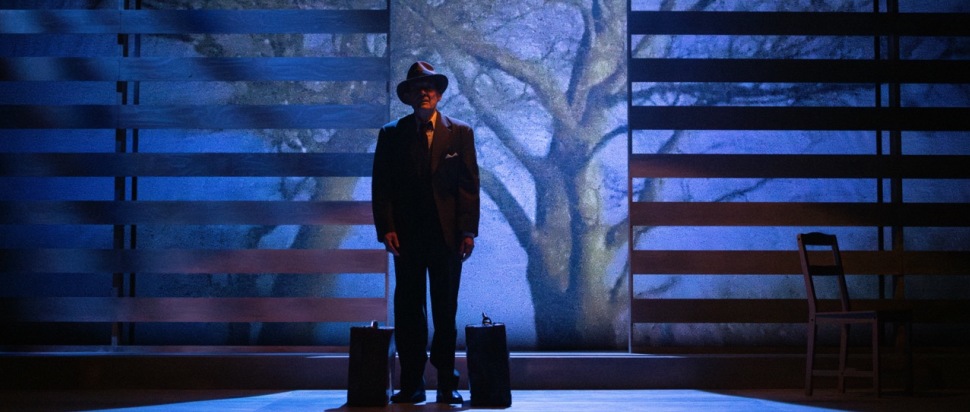Death of a Salesman @ Pavilion Theatre, Glasgow
An innovative adaptation of Arthur Miller's classic play invokes cultural anxieties about the nuclear family and the American Dream
Andy Arnold revives Arthur Miller’s acclaimed play aiming to coalesce audiences through tragedy. Coming into the production blind, not having read nor seen the play before, we leave refreshed by its sincerity and simplicity.
The play, and Arnold’s adaptation of it, screams tradition. It is protagonist Willy Loman’s (David Hayman) infantile yet encapsulating line – “I don’t want change, I want Swiss cheese. Why am I always being contradicted?” – that both warms the audience up with laughter and with an immediate sense of his character. Gradually, though, time passes and tension heightens. As Willy’s memories grow more haunted, the ingenious lighting and seamless scene transitions unravel. Unease fills the air as the audience witnesses particular secrets, and a complicated attachment to the play’s protagonists grows.
A peripheral yet visible band accompanies the drama, opening the production with the '007 chord' evoking a ravaged and rainy image of 1940s New York. Paired with the cast’s compelling New York City twang, the music, staging and set design take the audience to a dimension within dimensions. We constantly shift between Willy’s ruminative spirals and current reality.
The father-son dynamic between Willy and his son Biff (Dan Cahill) is the play’s focal point of tension. They form half of a family fractured by World War II and blatantly paralysed by the inability to handle the rage and repression of manhood, fatherhood and brotherhood. This results in family secrets and lies, and it is the audience who indulge in the drama from afar. Hayman gives a particularly striking performance, tapping into Willy’s youthful side during those spirals into the past, and displaying complete acidity when his wife aggravates him in his present moment. Hayman and Cahill exhibit an onstage chemistry that sharply captures the intensity of father-son relationships destabilised by things like war, economic delusion and political illusion.
The play exposes the ironies and hypocrisies that plague the family because of socioeconomic and sociopolitical desires like the infectious 'American Dream'. Though heavy with dialogue, it is often the play’s blocking and physical interactions between characters – like in Willy’s bright flashbacks to sports with his children – that signal hope through a different kind of mobility, one that depends on trusting one another to strengthen one another, and not relying on capitalist and militarist structures to grow the family. In this bleak play, Arnold nods to contemporary atrocities to demand that audiences never forget the value of togetherness in the face of national attempts at division and conquest.
Death of a Salesman, Pavilion Theatre, Glasgow, run ended; playing Festival Theatre, Edinburgh, until 22 Mar, then touring
